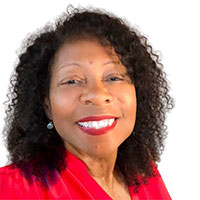Videos
View and discuss a powerful documentary with a circle of friends. Get a commitment from them to do the same within their friendship circle
- Mirrors of Privilege: Making Whiteness Visible
- Robert Jensen: The Color of the Race Problem Is White
- Race-The Power of an Illusion is a three part documentary about race in society, science & history. The Power of an Illusion questions the very idea of race as biology, suggesting that a belief in race is no more sound than believing that the sun revolves around the earth.
VHS and DVD: 3 episodes – 56 minutes each, 2003,
click here for ordering information
For an online companion click here - Meizhu Lui: talked about the Insight Center for Community Economic Development report she authored that looks at the the gap in wealth between minorities and whites. She and other policy experts, advocates from communities of color, and scholars met with members of Congress to discuss the report. Ms. Lui responded to telephone calls and electronic mail.
Click here for the C-Span Video interview with Meizhu Lui about the Racial Wealth Gap
More Videos
Jesse Williams- BET Awards that was powerful – Must see ..4 minutes
http://www.bet.com/video/betawards/2016/acceptance-speeches/jesse-williams-receives-humanitarian-award.html
Video of Singer’s Impromptu Performance of National Anthem at the Lincoln Memorial- Bringing people together ….It’s Awesome.. Enjoy ( Just because it’s summer enjoy!!)
http://ktla.com/2016/06/26/video-of-singers-impromptu-performance-of-national-anthem-at-the-lincoln-memorial-goes-viral/
TED Talks
Bryan Stevenson – https://www.ted.com/talks/bryan_stevenson_we_need_to_talk_about_an_injustice?language=en
http://www.bet.com/video/betawards/2016/acceptance-speeches/jesse-williams-receives-humanitarian-award.html
Roses Growing in Concreete is my favorite…TED Talk
https://m.youtube.com/watch?v=2CwS60ykM8s
Wonderful youtube about stereotyping …
https://www.youtube.com/watch?v=WYerKidQGcc
Turn your speakers on, watch this, and relax for a minute we are entitled : I think the singer is Roger Miller…remember him?
1 MINUTE 3 SECONDS OF PURE DELIGHT; https://www.youtube-nocookie.com/embed/vnVuqfXohxc?rel=0&%3bshowinfo =0
Videos to Spark Dialogue
A great response from Wendell Pierce on white violence, entitlement and racial messaging – Real Time with Bill Maher.
http://www.huffingtonpost.com/john-metta/i-racist_b_7770652.html
Cracking the Codes: Joy DeGruy “A Trip to the Grocery (Privilege in action)
https://www.youtube.com/watch?feature=player_embedded&v=Wf9QBnPK6Yg
https://www.youtube.com/watch?v=g4Q1jZ-LOT0&feature=youtu.be
Must See –Awesome Poem about White Privilege by..8th Grader—Hope for the future
Videos
TED Talk: Mellody Hobson: Color Blind or Color Brave?
This clip highlights the importance of talking about race and helps to explain the danger of the color blind perspective.
Bill Moyers interview with Ta-Nehisi Coates
http://billmoyers.com/episode/facing-the-truth-the-case-for-reparations/
Laverne Cox interview at Harvard University
https://www.google.com/url?sa=t&source=web&rct=j&url=http://m.youtube.com/watch%3Fv%3DjY3F1pIxHMA&ved=0CDQQuAIwCGoVChMI5bG2idWHyQIVAU0mCh1fOg7T&usg=AFQjCNEivDJa4cZQzE089yIt4QMEN24qMw
Introduces the conversation about intersecting identities.
The Danger of the Single Story
https://www.ted.com/talks/chimamanda_adichie_the_danger_of_a_single_story?language=en#
Explores the intersections of each of our multiple identifies. This clip reiterates the danger of reducing people to a single identity and challenges us to reach for broader understandings of the individuals we encounter. The clip is 20+ minutes. Viewers can choose to watch from 0-6:30min and 9:23-11:56min.
Black White Doll Test
https://youtu.be/tkpUyB2xgTM
Introduces the concept of internalized privilege/oppression and can lead to a conversation about implicit bias.
Claudia Rankine reciting poem from book Citizen: An American Lyric
https://youtu.be/a7jVqL4POvY
Clip from the movie Tootsie: “My Name is Dorothy”
https://youtu.be/Ch57pIuYhbM
TED Talk: Jamila Lyiscott: 3 Ways to Speak English
https://www.ted.com/talks/jamila_lyiscott_3_ways_to_speak_english?language=en
Introduces the concept of Code Switching and presents the idea that different ways of being and communicating are not inherently better/worse than another.
http://www.diversitytrainingfilms.com/films-2/films/
You can stream the film for a 24 hour period for $12.
Cracking the Codes: Joy DeGruy “A Trip to the Grocery Store”
https://youtu.be/Wf9QBnPK6Yg
Focus is on Allyship and the opportunities we each have to confront oppression once we have developed an awareness to see oppressive interactions that are occurring.
TED Talk: Jay Smooth: How I learned to Stop Worrying and Love Discussing Race
http://www.youtube.com/watch?v=MbdxeFcQtaU&sns=em
Anti-racist work is a lifelong practice, like brushing our teeth, and to encourage participants to continue to engage in conversations and learning even after the group is over.
“The future of race in America: Michelle Alexander at TEDxColumbus”
https://www.youtube.com/watch?v=SQ6H-Mz6hgw
“The power of privilege”: Tiffany Jana at TEDxRVAWomen
https://www.youtube.com/watch?v=N0acvkHIiZs
http://billmoyers.com/episode/incarceration-nation/ Incarceration Nation: Bill Moyers speaks with activist Michelle Alexander about the key to unlocking our dehumanizing system of incarceration
Richard Rothstein, “The Color Of Law” (with Ta-Nehisi Coates)
https://www.youtube.com/watch?v=9Pb6y9rNKmo
What Dark-Skinned People Will Never Tell You
https://www.youtube.com/watch?v=76X4JvjpXug
New Videos
| Name | Description | Address |
|---|---|---|
| Police Brutality:“No Justice, No Peace” | This film is an original Liberation News documentary about the struggle against police brutality and racist violence in California. The film is centered around the organizing efforts of more than 30 families of police brutality victims, who came together for a statewide march in Anaheim, CA, on July 21, 2013. This was the one year anniversary of the historic uprising against the Anaheim police after the killing of Manuel Diaz and a subsequent violent attack on neighbors who peacefully objected. It features footage from significant demonstrations leading up to July 21st, the organizing efforts of participants, and interviews with families, activists and leaders in the police brutality movement. It also chronicles the reaction to the George Zimmerman verdict, which coincidentally was announced just a week prior to the march in Anaheim. Within the protests that followed the announcement, the film takes a look at the racist nature of the justice system and how the murder of Trayvon Martin is inextricably linked to the movement against police brutality. More than 50 families of innocent people killed by police officers ended up joining the protest on July 21st, along with around 1000 supporters. This network of families, activists and organizations continues to grow as part of a nationwide movement against police brutality and racist violence. | Read |
| The African Americans: Many Rivers to Cross Available for purchase only This is a must watch series | This Emmy Award-winning series premiered in 2013 and looks at more than just Black history, it explores Black identity and what it means to be an African American in the U.S. today. Unveiling different religious and social perspectives, a multiplicity of cultural perspectives, and the evolution of the African American people, this series spans five hundred years and two continents as Professor Henry Louis Gates, Jr. takes viewers on a journey of the Black experience throughout the United States. On the way, he visits historic sites, engages in passionate debates with America’s top historians on African American history, and interviews eyewitnesses who have been on the frontlines of change. Throughout the series, Dr. Gates highlights tragedies, triumphs and contradictions throughout Black history, revealing that the African American community has never been a uniform entity and sheds new light on what it means to be African American. | Read |
| Police Accountability (Or Lack There Of): “These Streets Are Watching” | These Streets are Watching is a 50 minute video on police accountability in three communities; Denver, Cincinnati and Berkeley.[1] The video documents incidents of possible police brutality.[2] Independent filmmaker, Jacob Crawford, weaves three cities responses to police brutality into a single tale of community empowerment and direct action. The film conveys basic legal concepts that can provide practical help to groups and individuals seeking an understanding of their rights when dealing with police. The film is divided into sections that explain citizen’s basic rights, tactics for documenting police activity and ideas for further action and organizing. These Streets Are Watching has been screened across the United States[3][4][5][6][7] and has played on television across the United State | Read |
| Freedom Riders | Based on Raymond Arsenault’s book Freedom Riders: 1961 and the Struggle for Racial Justice, this two-hour documentary tells the story of the summer of 1961 when more than 400 Black and white Americans risked their lives traveling together in the segregated South to protest segregation. Committed to the cause of justice and determined to attract attention to the pursuit of civil rights, they boarded buses and trains, calling themselves “Freedom Riders.” Deliberately violating Jim Crow laws, the Freedom Riders were met with bitter racism and mob violence along the way. Still, they continued to ride and find new ways to sustain and expand the movement. Featuring testimony from the Freedom Riders themselves, government officials, and journalists who witnessed the Rides firsthand, this documentary gives viewers a front row seat to the Rides that changed history. “The lesson of the Freedom Rides is that great change can come from a few small steps taken by courageous people,” says filmmaker Stanley Nelson, “And that sometimes to do any great thing, it’s important that we step out alone.” | Read |
| Impact Of The Media On The Justice System: “The Central Park Five” | In 1989, five black and Latino teenagers from Harlem were arrested and later convicted of raping a white woman in New York City’s Central Park. The Central Park Five tells the story of that horrific crime, the rush to judgment by the police, a media clamoring for sensational stories and an outraged public, and the five lives upended by this miscarriage of justice. | Read |
| Racism In Communities: “Shenandoah” | “Shenandoah” is a disturbing example of the mob mentality present in many towns across America. The narrative tracks the murder of a Mexican immigrant in order to reveal the reality of American life for those who fall far from the top of the presiding social hierarchy in the closed system of a place which is much smaller than but not wholly unlike Ferguson, Missouri. | Read |
| Racism In General: “Racism: A History” | Should you need to step back to understand the very beginnings of institutionalized racism, “Racism: A History” is the closest you will get to a Racism 101 class available for streaming. Created for the 200th anniversary of the abolition of slavery, this BBC documentary begins with the creation of race and the way black people were used as “items for trade.” It focuses on how that economic system created a reality where (as one of the film’s experts, history professor James Walvin, put it) “black inferiority [is] built into fundamental cultural values.” | Read |
| Slavery by Another Name | Did Slavery really end with the Civil War? The documentary Slavery by Another Name explores how in the years following the Emancipation Proclamation, systematic approaches were taken to re-enslave newly freed Blacks in the United States. This system included new brutal methods of forced labor in which men were arrested and forced to work without pay, bought and sold, and coerced to do the bidding of masters. Spanning the 60 years following the Civil War, this 90-minute documentary includes interviews with key Black history scholars like Khalil Muhammad, Mary Ellen Curtin, Risa Goluboff and Adam Green, in addition to moving reactions from descendants of both victims and perpetrators of the forced labor system. Giving voice to the thousands of victims from this period, Slavery by Another Name will challenge assumptions that slavery ended 150 years ago. | Read |
| Eyes on the Prize | For the preeminent documentary series on the Civil Rights Movement, look no further than Eyes on the Prize. When it premiered on television in 1987, The Los Angeles Times called it “an exhaustive documentary that shouldn’t be missed.” This award-winning series covers all of the major events of the Civil Rights Movement from 1954-1985, including the Montgomery bus boycott in 1954, the Voting Rights Act in 1965, the birth of the Black Power Movement, and the courageous acts of the crusaders that contributed along the way. Narrated by political and civil rights leader Julian Bond, the 14-hour series combines historical footage and contemporary interviews with key figures of the period; Reverend Ralph Abernathy, Coretta Scott King, Kwame Ture (also known as Stokely Carmichael), and George Wallace have died since its release. Not only does this series serve as a comprehensive resource in this extensive history, it acts to preserve their testimonials for future generations. | Read |
| The Black Power Mixtape 1967-1975 | The Black Power Mixtape tells the story of the Black Power Movement through the eyes of Swedish journalists. Drawn to America in the late 1960s by stories of revolution and urban unrest, the journalists recorded interviews with activists like Stokely Carmichael, Bobby Steale, Angela Davis and Eldridge Cleaver. Thirty years later, this interview footage was found in the basement of Swedish Television and was brought to life by Director Göran Olsson and co-producer Danny Glover. Set to music by Questlove and Om’Mas Keith, the filmmakers use the original interviews mixed with images and commentary from African-American artists and activists who were influenced by the struggle such as Erykah Badu, Harry Belafonte, Talib Kweli and Melvin Van Peebles. Together they tell the story of The Black Power Movement and how it not only changed the Civil Rights Movement, but how it changed America – forever. | Read |
| Dark Girls | Dark Girls is an emotional exposé on what it means to be dark skinned in America. Filmmakers D. Channsin Berry and Bill Duke capture moving interviews with women who open up about their experiences being dark, Black women in America. They share painful stories about things their mothers, sisters and friends have said, in addition to what they’ve taken away from mass media. Overwhelmingly these interviews reveal the same thing: To them, Black is not beautiful. In an effort to learn more about the concept of Black beauty, the filmmakers reach both in and outside the Black community to seed conversations that reveal deep-rooted biases about race. Combining these emotional interviews with historical context and well-known psychological studies, the film sheds light on the perceived biases of “dark versus light,” and its ultimate aim to help people see that Black is beautiful. | Read |
| 13th | Filmmaker Ava DuVernay talks about her new documentary, 13TH, which explores the history of race and the criminal justice system in the United States. The film’s title refers to the 13th Amendment. | Read |
The following two videos are brilliant regarding local antiracist organizing for self determination sum at the municipal level. It presents a PISAB/human rights framework also dictated dictated by CERD.
(The international treaty signed by the US Convention for the Elimination of Racial Discrimination)
Robin Benton, Antiracist Organizer and Human Rights Educator offers a clear and concise 15 minute overview of the People’s Institute Power Analysis as a framework for local organizing for self determination. Demonstration project in Asheville NC.
15 minute video
https://drive.google.com/open?id=1ez6gxsmvjxPAlh_TLlXJms5G7PJmOZZ_
The next video captures a 1.5 hour conference they held in 2016.
Onaje Muid moderator, Human Rights Educator
Professor Dwight Mullins, Social Policy at University of NC Asheville. He presents the work that he has engaged in for 10 years to produce an annual State of Black Asheville Report that is being used for local organizing.
Robin Benton presents a formula developed to engage local municipalities with an organizing apparatus to improve the outcome for people of color.
1.5 hrs
https://drive.google.com/open?id=1ez6gxsmvjxPAlh_TLlXJms5G7PJmOZZ_
Reading:
Radical Municipalism: the future We Deserve
http://www.filmsforaction.org/articles/radical-municipalism-the-future-we-deserve/
People's Institute Power Analysis Framework
For more extensive resources visit: antiracistalliance.com




